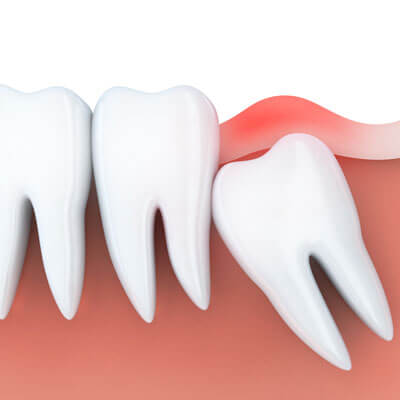Wisdom Tooth Extractions in Park Holme
 Your wisdom teeth are the final set of molars to come in. For most individuals, this eruption process usually happens sometime during the mid-teens or early twenties. However, it’s not uncommon for wisdom teeth to continue developing until a person is almost 30 years of age (hence their nickname).
Your wisdom teeth are the final set of molars to come in. For most individuals, this eruption process usually happens sometime during the mid-teens or early twenties. However, it’s not uncommon for wisdom teeth to continue developing until a person is almost 30 years of age (hence their nickname).
- Partial impaction/eruption
- Pressure on adjacent teeth
- Gum disease
- Tooth decay
- Tooth crowding throughout the mouth
- Cysts or infections
- Pain and swelling
Even if your wisdom teeth were to erupt straight into place, their position towards the back of the mouth often makes them difficult to clean. As such, they’re highly susceptible to developing infections such as periodontitis and cavities. These conditions can spread to adjacent teeth, impacting the health of your smile as a whole.
If your dentist suspects that your wisdom teeth are susceptible to problems—or they’re already causing pain—we may recommend having them removed proactively. Otherwise, we can monitor them at each checkup to ensure they’re free of infection.

Diagnosing Impacted Wisdom Teeth
As part of your wisdom tooth exam at Smiles Are Us, we’ll take a CT or panoramic X-ray to assess the oral structures immediately surrounding your third molars. This information will allow us to see whether your wisdom teeth are causing problems or positioned in a way that could lead to complications later on.
Keeping You Comfortable
Like any tooth extraction, your wisdom tooth removal is one that is planned out very carefully. We will take added steps to ensure your comfort throughout the entire appointment. In addition to numbing the areas around your teeth, sedation dentistry may be recommended. Helping you relax allows us to work more efficiently for the best outcome.
After Your Oral Surgery
Plan to take a day or so off from work or school to recover from your wisdom tooth extraction. Stock up on soft foods such as pudding, gelatin, ice cream and yoghurt, which are gentle on extraction sites.
Take medication as directed. During the first 24 hours, plan to alternate a cold compress on and off for every 20 minutes to alleviate swelling, which is one of the primary precursors of discomfort.
If you need to have sutures removed, we will see you about 3-4 days after your surgery. Our office is available should you experience any complications such as fever, pain or infection.
Impacted Wisdom Tooth?
If your wisdom tooth is impacted, don’t delay seeking treatment. Contact us today for a consultation!
Any surgical or invasive procedure carries risks. Before proceeding, you should seek a second opinion from an appropriately qualified health practitioner.

